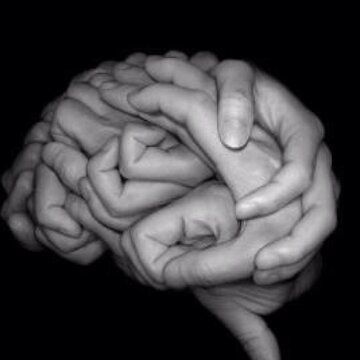As mentioned recently in other posts, just because I haven't been posting doesn't mean I haven't been observing, and I haven't seen anything that has provided a serious challenge since you introduced Chalmers. That was really a brain twister, and you and I ended up on seemingly opposite sides of the fence.
And I've responded to your "might be" also "for the record" just to make sure it's clear for anyone who might have interpreted your comment as accusatory.
On the subject of chess, it should be noted that memorizing moves and games by the masters is essentially part of a "brute force" approach to the game, and that can only take a player so far. I play the game and I don't use that method. I couldn't tell you the name of any opening, but the other day I cleaned up on a player rated over 1800, and I've won against masters ( not often ), but it's happened. Right now I'm doing lousy. My rating is down below 1600, which is embarrassing. If you ever want to play, I'm on the BabasChess server as Lakeview.
It's not about memorizing moves and games, it's about building a
vocabulary of positions, chunks of information ... just as we build a vocabulary of words (and at about the same rate, apparently) this is how a chess master can play several amateurs at a time ... blindfolded.
We don't use a "brute force" approach to language, yet we know thousands of words and phrases. When I lived in Germany, long before I could speak the language, I recognized key phrases over and over - at stores, at the train station, at the dinner table, etc ... and I even dreamt in German without being able to understand it! That was very strange ... now I can recognize this even in English, I work at the library and we use the same phrases hundreds of times and day and even have practically the same conversations with other employees and frequent patrons (but even that repetition communicates something - for example, that all is well - it's reassuring and it reinforces our sense of reality - we notice when someone breaks the pattern) ... but this is not what I would describe at brute force, just the opposite - it takes effort to recognize ... so let's go back to the blindfolded chess master now:
"ah, Guten Morgen Herr Bauer!" - he thinks and he sees just where he is headed in the chess game the same way I know what Mrs. Bower, my third grade teacher, will check out - and if it's something different, I will quickly figure out why (it's for her daughter or someone recommended it to her) just as the chess master will probably very quickly see what Herr Bauer has up his sleeve ... then he goes right along with Herr Bauer and Frau Frinkle and so on ... quickly countering each move and winning each game, all the while thinking about the lovely Pferdewurst he will pick up for dinner that evening, only turning his concentration up a notch when needed, but mostly playing in the same unconscious way we use language. When he plays another master, he will have to choose his "words" more carefully.
some of the key words to search for these ideas are:
expertise
differences in novice and expert (there are some interesting studies, one I remember compares novie and expert approaches to solving physics problems)
chunks (I think there is something like 10,000 of these - so an expert in any field knows about 10,000 relevant things or chunks of information in their field)
10,000 hours (about how long it takes to acquire expertise, with deliberate practice)
deliberate practice
ten years - about how long it takes to develop expertise and this correlates also with building an adult vocabulary in a language, so that is something we are expert at ... we are
not all expert drivers, because we don't
deliberatly practice being better drivers ... unfortunately
I understand that studying (as opposed to memorizing) chess openings and chess problems are considered good for increasing chess prowess ...
I've recently become interested in
Go ... there are some good online tutorials. When I've finished those I'd like to find a good
Go server.


